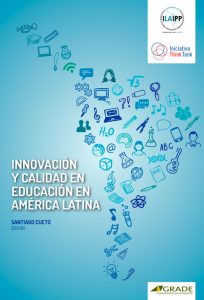La construcción política e institucional de la reforma universitaria: los casos del Perú y Ecuador
Innovación y calidad en educación en América Latina
| Año | : | 2016 |
|---|---|---|
| Autor/es | : | Martín Benavides, Carmela Chávez, Adriana Arellano |
| Área/s | : | Educación y aprendizajes |
Benavides, M., Chávez, C. y Arellano, A. (2016). La construcción política e institucional de la reforma universitaria: los casos del Perú y Ecuador. En S. Cueto (Ed.), Innovación y calidad en educación en América Latina (pp. 155-194). Lima: ILAIPP; GRADE.
Usando información secundaria y entrevistas, este estudio comparativo muestra cómo Perú y Ecuador han construido de manera diferente sus políticas de aseguramiento de la calidad (PAC) de la educación universitaria. El estudio documenta los dos tipos de PAC, al mismo tiempo que da cuenta de cómo en cada país se dio una relación distinta entre gobiernos, sociedad civil, reglas de juego y legados históricos de cada sistema universitario. Se ha encontrado que mientras en el caso ecuatoriano tanto el mercado como las propias universidades sucumbieron ante el poder del Estado en el proceso regulatorio, en el caso peruano las inercias institucionales vinculadas al poder de las universidades en conjunto, con una ideología de mercado aún fuertemente presente, más bien debilitaron al Estado en su proyecto regulador. En ese sentido, se señala que los diferentes contextos ideológicos, y arreglos entre actores sociales y políticos llevan, por un lado, a una regulación de corte tecnocrático (Perú) y, por el otro, a una regulación de corte político (Ecuador).







